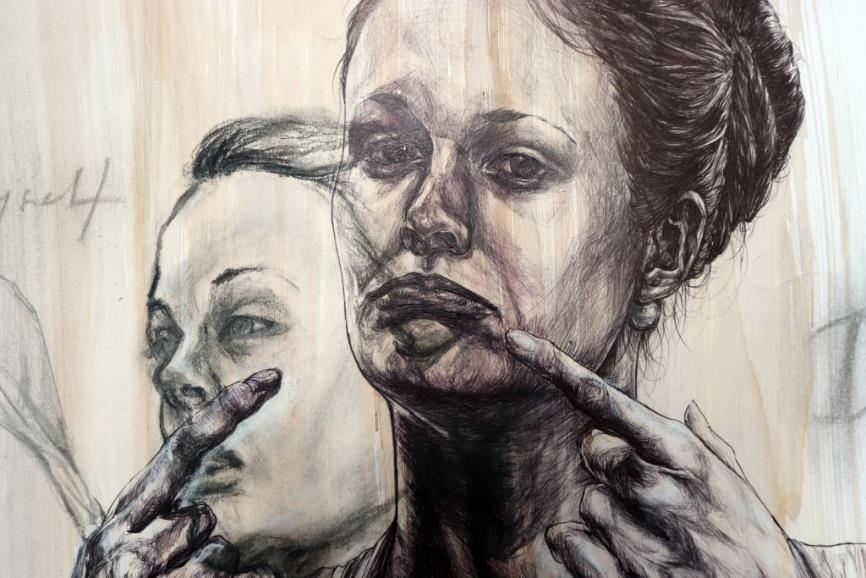
4 minute read
ADVANCED LEVEL SUBJECT: Drama (Cambridge International AS & A Level 9482
ADVANCED LEVEL SUBJECT: Drama (Cambridge International AS & A Level 9482)
The course offers two possible routes:
• AS Level only – taken in Year 12 • A Level - where candidates take the AS exam in Year 12 and complete the full A level A2 in Year 13
Aims
• appreciate the aesthetic power of drama and theatre, and expand their ability to stage imaginative interpretations of existing repertoire and devise creative practical work of their own • develop interest in, and lasting enjoyment of, drama and theatre as a unique means of human communication and expression • develop their practical skills in drama, and understand the contribution of actors, designers and directors in a production situation • develop the critical and theoretical apparatus necessary for in-depth analysis of drama • expand their knowledge and understanding of practitioners, performance texts, styles and genres, and increase their appreciation of the social, cultural and historical dimensions of drama and theatre • form a suitable preparation for higher education, whether at university, drama school or elsewhere
Course Description AS has two components:
Component 1 - is a 2-hour written examination on two set play texts. You answer questions from the perspective of an actor, director or designer. The current Year 12s are studying Wole Soyinka’s The Lion and the Jewel (1959) and Simon Stephens’ The Curious Incident of the Dog in the Night-Time (2012). This is worth 50% AS Level or 25% A Level.
Component 2 - is a practical component, comprising of two tasks. The first is a 10–15-minute devised piece based on a choice of stimulus with a 3-minute spoken self-evaluation of the strengths of their personal contribution to the piece. There is also a 10–25-minute scripted performance of a play text. Each piece is videoed and marked by your teacher, moderated by the Drama team and then sent off to the examination board for final moderation. This is worth 50% AS Level or 25% A Level.
A2 has two components:
Component 3 is a practical component consisting of two tasks: a 15–20-minute devised performance with an 800 word analysis and evaluation with a 6-8 minute individual performance. The individual performance is created from a range of texts that are thematically linked. This is worth 25% A Level.
Component 4 is a 2500–3000-word research essay task exploring a topic of your own choice exploring a theatre genre, a theatre practitioner's work or a performance style. The area of study is chosen by the student. This is worth 25% A Level. There is no external written examination in the second year of the course.
Requirements
You will need to enjoy the processes of making theatre: designing, directing, and performing, as well as the theory and practice upon which performance and production skills are based. You should be able to work collaboratively as the majority of the course content will be delivered through practical workshops and projects, that are supported by independent reading, research and journal work. You will need to be self-motivated and possess good time management skills. GCSE Drama is certainly valuable preparation for this course though it is not a requirement. You may be asked to show your ability and passion for the subject by attending an interview. It is important to note that students taking SL Theatre attend HL lessons as three of the assessments are the same. In the past SL Theatre students have finished their Theatre course early, at the end of Term 1 in the second year and have really appreciate this extra time going into Term 2.
Career Path:
The Arts industry is of one the world’s largest and most diverse employers, from production and performance to events management and creative marketing. The study of theatre is fundamental for pursuing careers in theatre, acting, film, television, and radio. However the transferable skills which IB Theatre offers, such as critical thinking, problem solving, risk taking, versatility and flexibility, resourcefulness and being able to contribute as team player, allows students to enter a career not necessarily in the arts; many students with this qualification have progressed into careers in law, journalism, politics, public relations, media, business, education, drama/speech therapy, community/social work, advertising, event organisation and marketing.
Transferable skills learned in Drama lessons
Oral communication skills, physical communication skills, creative problem solving abilities, time-budgeting skills, motivation and commitment, a willingness to work co-operatively, the ability to work independently, using your initiative, promptness and respect for deadlines,
respect for colleagues, adaptability and flexibility, the ability to learn quickly--and correctly, the ability to work under pressure, acceptance of disappointment--and an ability to bounce back, a goal-oriented approach to work, a healthy self-image, self-discipline, concentration, dedication, a willingness to accept responsibility, leadership skills, selfconfidence, and finally enjoyment -- "this is fun!".








